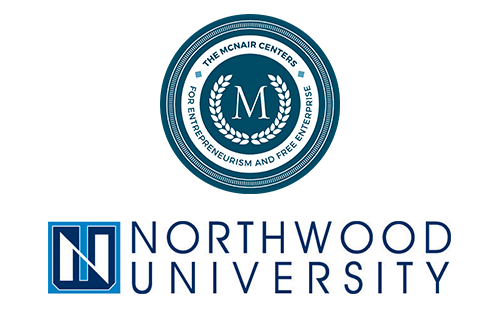James Earl Carter, Jr. leaves a complex legacy (McNair Op-Ed in Midland Daily News
James Earl Carter, Jr., the 39th president of the United States, was a complex figure in American politics.
Born Oct. 1, 1924, in Plains, Georgia, he passed away in the same town on Dec. 29, 2024, at the age of 100. The longest-lived president in U.S. history, Carter’s life epitomized public service and humility, grounded in his upbringing on a peanut farm and his early career as a naval officer.
A graduate of the U.S. Naval Academy, Carter served in the Navy until 1953, when he returned to Plains to manage his family’s struggling business after his father’s death. He was married to his beloved wife, Eleanor Rosalynn Smith Carter, a graduate of Georgia Southwestern College, for almost 80 years (from 1946 until her passing in 2023). Carter’s experience in rebuilding the family enterprise shaped his practical approach to leadership. He entered politics as a Democrat, serving in the Georgia State Senate and later as Georgia's governor from 1971 to 1975.
Carter had many who disagreed with his economics and politics, but few questioned his moral character and fiber. Throughout his career, Carter was admired for his integrity, even by those who criticized his policies. His presidency (1977–1981) was marked by significant achievements and profound challenges.
Assessing the Carter Presidency
President Carter’s tenure was defined by economic turmoil, including high unemployment, record inflation, and soaring interest rates.
Foreign policy setbacks, notably the Iran hostage crisis and a failed rescue attempt, undermined his popularity and contributed to his re-election loss to Ronald Regan in 1980.
However, Carter’s presidency also left enduring legacies:
• THE CAMP DAVID ACCORDS — Carter brokered peace between Egypt and Israel, culminating in the 1978 Camp David Accords. Egyptian President Anwar Sadat and Israeli Prime Minister Menachem Begin signed the agreement, earning them the Nobel Peace Prize and bringing unprecedented stability to the Middle East.
• A DEREGULATION PIONEER — Under President Carter, deregulation of U.S. oil and natural gas, railroads, trucking, communications and airline industries were either initiated or completed. Carter’s push for deregulation transformed key sectors of the U.S. economy, including reducing federal control over industries such as oil, natural gas, railroads, trucking, telecommunications, and airlines. The resulting competition fostered innovation and lowered costs for consumers. For instance, airline ticket prices dropped 50% within four years, and advancements in telecommunications laid the groundwork for the internet age.
• BACKING THE MUJAHIDEEN — Early in 1980 President Carter, with support from Saudi Arabia, financially supported and armed the Mujahideen freedom fighters in their battle against Soviet troops who had recently invaded Afghanistan.
• APPOINTING PAUL VOLCKER TO CHAIR THE FEDERAL RESERVE — Carter’s appointment of Paul Volcker in 1979 marked a turning point in combating inflation. Volcker’s tight monetary policies, though controversial, helped break the back of inflation. While this decision likely cost Carter his re-election, it stabilized the economy in the long term, paving the way for future growth.
A Moral Legacy
Above all his trials and tribulations, President Carter will be remembered as a peacemaker. His formative years, understanding poverty and racism, helped develop his human rights policies. At his inauguration, he pledged to “shape a just and peaceful world” through ethical leadership. His administration’s focus on human rights reflected his personal values, cultivated by a childhood in the segregated South and a deep sense of justice.
Many of President Carter’s greatest accomplishments occurred with his work after his presidency.
The Carter Center, founded in 1982, worked to advance democracy, resolve conflicts, and fight disease worldwide. His post-presidential efforts earned him the Nobel Peace Prize in 2002 for his “decades of untiring effort to find peaceful solutions to international conflicts, to advance democracy and human rights, and to promote economic and social development.”
Carter was also a hands-on advocate for affordable housing through Habitat for Humanity and supported youth programs like the Boys and Girls Club of America. His commitment to service endured until his final years.
An Imperfect President
Carter was not a perfect human being, nor without his detractors. Surprisingly, he even drew criticism for stances he took or did not take in the areas of civil rights and “human decency.”
Some accused him of political expediency, such as his opposition to busing for school integration, a stance he likely took to appeal to white voters.
Fox News contributor and Wall Street Journal columnist Bill McGurn recently remarked, “Carter’s achievements are mostly personal. In the public arena, there were significant problems. Yet his marriage to Rosalynn Carter for over seven decades and his post-presidency contributions are extraordinary.”
Even Carter’s 1980 campaign against Ronald Reagan drew criticism. Labeling Reagan a “racist” and “warmonger” backfired, as Reagan’s policies later proved transformative. Nevertheless, Carter’s commitment to decency and his genuine concern for humanity remain his defining traits.
Conclusion
Jimmy Carter’s presidency was far from flawless, yet his life embodied the values of service, humility, and moral conviction. His vision of leadership extended beyond political office, as he tirelessly worked to improve lives globally.
Carter’s legacy as a peacemaker and advocate for human rights ensures he will be remembered not just as a former president but as a man who left the world better than he found it—a goal to which all leaders should aspire.
About the Authors
This piece was co-authored by Dr. Timothy G. Nash, director of the McNair Center at Northwood University, Joseph G. MacDonald, retired executive director of government relations at St. Francis Xavier University, and Bob Thomas, COO of the Michigan Chamber of Commerce.
